| |
|
|
|
|
|
|
| |
|
Editor's note
|
|
Sports scholar Roger Pielke, Jr. parsed data from the National Federation of State High School Associations and found that high school football participation rates – after decades of steady growth – started to decline in 2013. What might explain the dip? And which sports are kids gravitating to instead of football?
If you’re thinking of checking out the disaster movie “Geostorm” this weekend, prepare for post-film “could that really happen?” conversations by reading Jane Flegal and Andrew Maynard’s take. Some scientists are taking geoengineering seriously as one arrow in the quiver to deal with climate change. But a lot of public debate needs to take place before large-scale experimentation on our planet’s atmosphere.
Speaking of experiments, diversity and inclusion expert George Cunningham discusses social science research that he and others have done about how people often fail to speak out when they observe sexist behavior. These findings, he says, may explain how Harvey Weinstein reportedly preyed on the women he worked with for so long.
|
Nick Lehr
Editor, Arts and Culture
|

|
|
Top stories
|
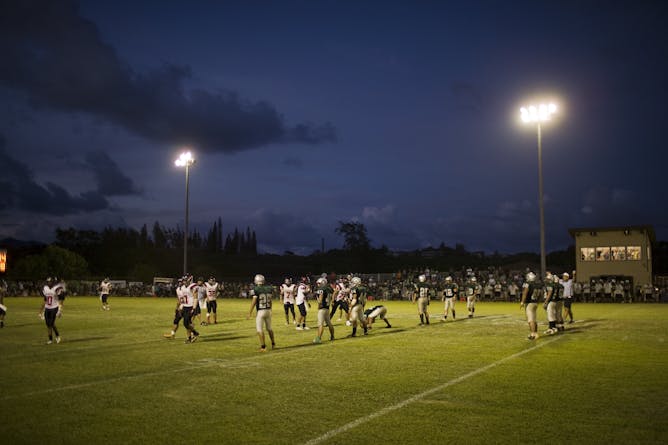
A high school football game in Kapaa, Hawaii on the island of Kauai.
Marco Garcia/AP Photo
Roger Pielke Jr., University of Colorado
After decades of continuous growth, participation rates have started to decline. What does it mean for the future of the sport?
|
Economy + Business
|

George B. Cunningham, Texas A&M University
Research shows that few people take a stand when they witness sexual harassment. Until that changes, this predatory behavior will haunt American workplaces.
| |
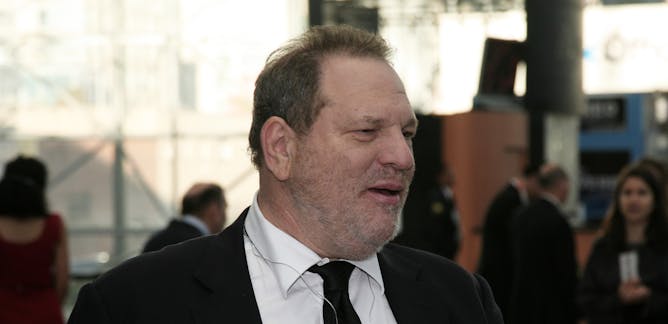
Ted Lechterman, Stanford University McCoy Family Center for Ethics in Society
Offering money as a form of atonement is easier for the movie mogul than finding someone who will accept it.
|
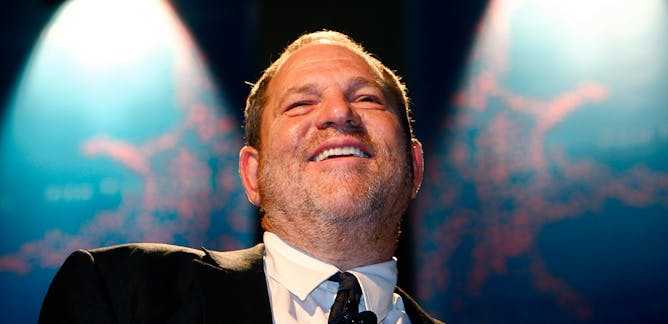
Elizabeth C. Tippett, University of Oregon
Videos and other material from the '80s and '90s remind us that harassment isn't about sex so much as discrimination, inequality and power.
| |
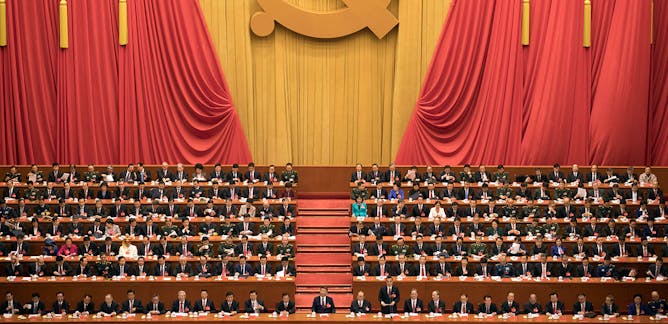
David Skidmore, Drake University
China's surplus of unmarriageable men poses a stark dilemma for Xi and other leaders as they set the country's economic course for the next five years.
|
|
|
Arts + Culture
|
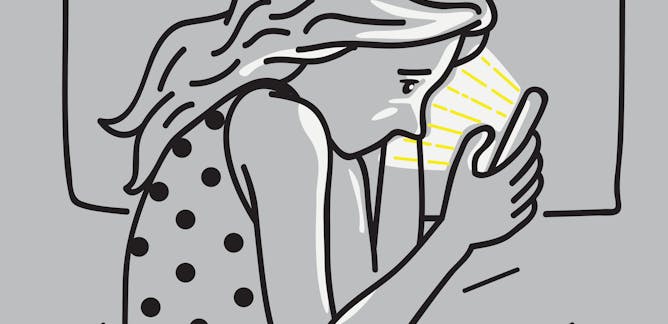
Jean Twenge, San Diego State University
The amount of time teens have spent working and participating in extracurricular activities has held steady in recent years. There has, however, been one big change in their lives: smartphones.
| |
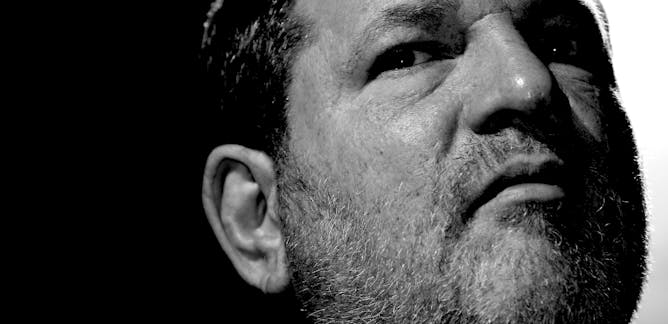
Sarah Banet-Weiser, University of Southern California, Annenberg School for Communication and Journalism
Public-facing feminism can often be a superficial distraction from systemic sexism.
|
|
|
Science + Technology
|

Chad Hanna, Pennsylvania State University
A LIGO team member describes how the detection of a gravitational wave from a new source – merging neutron stars – vaults astronomy into a new era of 'multi-messenger' observations.
| |
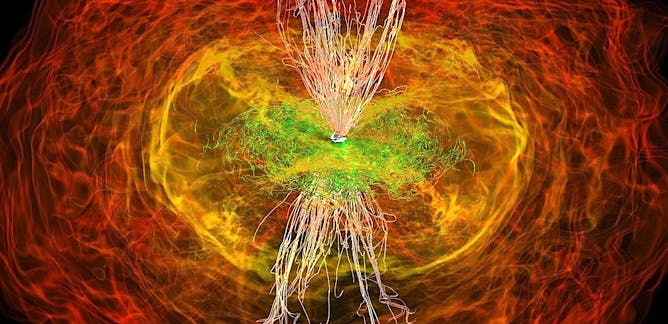
Roy Kilgard, Wesleyan University
The gravitational wave itself is the least exciting part of the announcement from LIGO and Virgo. Observing this new source answers many longstanding questions.
|
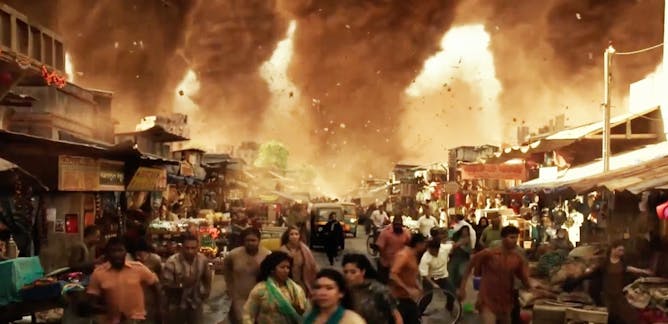
Jane A. Flegal, University of California, Berkeley; Andrew Maynard, Arizona State University
A disaster fantasy raises questions about tinkering with Earth's climate. With real-life scientists exploring geoengineering, what conversations should we be having now around these technologies?
| |

Seth Copen Goldstein, Carnegie Mellon University
Micro-targeted online advertising has destroyed how Americans share experiences and a common knowledge base. The fix for this societal and political problem is as simple now as it was in 1840.
|
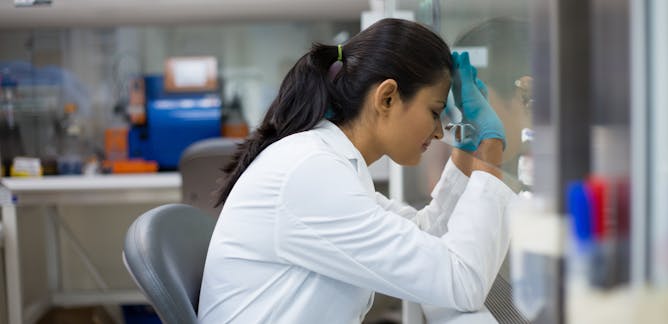
Valen E. Johnson, Texas A&M University
Scientists have a big problem: Many psychological studies don't hold up to scrutiny. Is it time to redefine statistical significance?
| |

Roderick S. Graham, Old Dominion University
Cybercrime affects individuals and families as they navigate online life. But significant efforts focus instead on cybersecurity, protecting institutional networks and systems – rather than people.
|
|
|
Environment + Energy
|
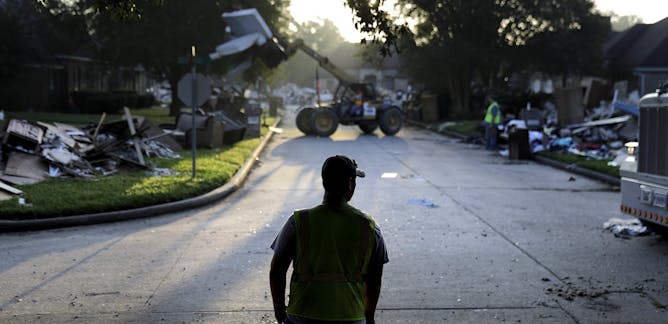
Jennifer Horney, Texas A&M University
Epidemiologists study disease outbreaks in populations to determine who gets sick and why. In the wake of this year's hurricanes, they are assessing impacts from mold, toxic leaks and other threats.
| |

William Moomaw, Tufts University; Asaf Tzachor, UCL
Marine microalgae are full of nutrients and can be raised indoors using much less land and water than meat or even plants. Could algae-based foods replace meat, eggs and milk on our tables?
|
|
|
Health + Medicine
|

Richard G. "Bugs" Stevens, University of Connecticut
Evidence for a link between breast cancer and artificial light appears to be growing. Do studies showing higher risk of breast cancer the farther west a woman lives in a time zone add to the science?
| |
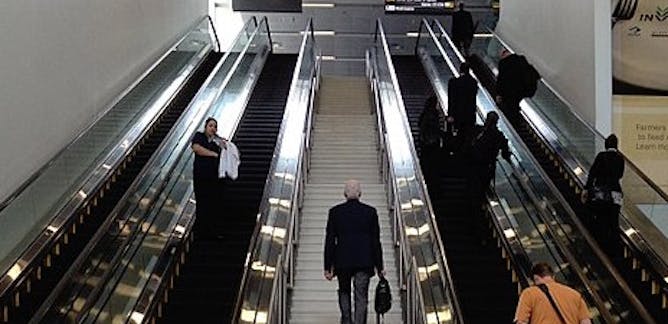
Matthew Mclaughlin, University of Newcastle; John Bellettiere, University of California, San Diego; Natasha Bliss, San Diego State University
Dropping old, bad habits is hard, but starting new, good ones may not be so difficult. Or so a recent study suggests. Read how a simple sign at an airport made a difference.
|

Lacey Wallace, Pennsylvania State University
Horrific mass shootings in the US typically renew the national debate about gun policy. A gun researcher explains the lack of funding for study in this area and what that means for informed policy.
| |

Jeyaraj Vadiveloo, University of Connecticut
How many healthy years of life do you have ahead before you become unhealthy – and then die? One model tries to find the answer.
|
|
|
Politics + Society
|

Emily Costello, The Conversation
Fewer people are getting married. What gives?
| |

Soledad Stoessel, National University of La Plata
Ecuador's president, Lenin Moreno, has been flirting with conservatives. Beyond irking his base, it has also lead to mass resignations and Twitter battles with his powerful left-wing predecessor.
|

Saul Cornell, Fordham University
A leading historian of constitutional thought says the contemporary Second Amendment debate is founded on serious misunderstandings.
| |

Anna L. Peterson, University of Florida
The white nationalist's visit to the University of Florida shows just how messy life's moral dilemmas can get.
|
|
|
| |
| |
| |
| |
| |
| |
|
|
|
|
|
|
| |